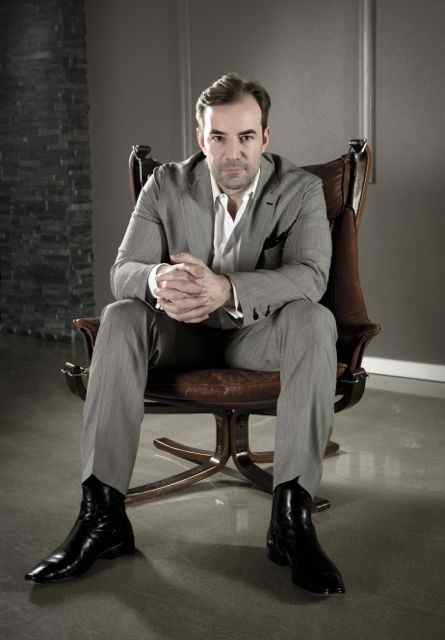
Framed face full of desire.
A cloud of hope and fear.
Longing to move forward,
But reluctant to step
In the direction of
The dreams you hold sacred.
Oh, desperate child,
Lift the veil from your eyes.
See the world as it is.
A dance of confusion,
Fulll of uncertainty.
A search for clarity.
Awake, wayward angel.
Listen to the rhythm
Beating inside of you.
A source of truth and love
In the darkness of doubt,
Telling the way to go.

Upon the recommendation of a friend stemming from an ongoing conversation we have been having on the importance of being present, I recently read David Foster Wallace’s commencement speech that he made to the 2005 graduating class of Kenyon College. Aside from the irony that he connects the difficulty of maintaining awareness against the drudgeries of modern life with understanding adults who commit suicide three years prior to his own suicide, the following line resonated with me: “The really important kind of freedom involves attention, and awareness, and discipline, and effort, and being able truly to care about other people and to sacrifice for them, over and over, in myriad petty little unsexy ways, every day.”
This line rings so true because it encapsulates our purpose and so much of the struggle in our lives — to show up every day with an open mind and heart and believe, regardless of what has happened, today can be different. The difficulty lies in that as we strip away our layers of psychic and soul debt, we remove our protective shields and increase our vulnerability by exposing our inner selves to the world with nothing between us and it. And, the farther along on the journey that we get, the more intensely we feel and unfortunately the deeper we will experience the dull, aching, numbing pain that comes with being present when things don’t go our ways.
As we live more life, we amass more experience from which we see patterns and trends and formulate opinions. Unfortunately we don’t always view this “data” objectively, and it often collects as burdens or baggage that we carry and allow to define us and shape our actions. People will do certain things and act in certain ways and we recognize, that in the past it means X seven out of ten times. Of course it can mean W, Y or Z, but our experiences tell us X. Although we know it could possibly be the less likely of meanings, it’s very difficult to convince ourselves of that because it feels like we are hoping or even deluding ourselves to rebuff logic and appease our own desires or protect ourselves from the pain the undesirable meaning brings.
So how can we ignore our instincts and memories of past experiences and be present to embrace whatever joy or pain that will come our way without donning our battle armor and engaging in a defensive stance? Perhaps our only course is to forget, to wipe the hard drive clean, to unlearn this practice of trend and pattern analysis, to reject the tendency to look at current and future events through the lens of past experiences, to ignore probabilities and odds and remain open that regardless of statistics and human habits, a myriad of meanings and explanations can exist for the same stimuli, and regardless of the percentage, any one of them can be true.
Of course the difficulty lies not in the theory but in the practical application because, in the spirit of the Winston Churchill and George Santayana similar adages, to not learn from our experiences condemns us to repeating them. But maybe the secret lies not in what we should do, but in what we shouldn’t do, in so much as we should not try to “solve” or eradicate the pain, just as much as we shouldn’t attempt to clutch or cling to the joy in our lives. We should not assign a beginning and end to our experiences and accept cause and effect is a never ending process. We should not attempt to control the joy and the pain and allow them to flow and linger as long as they will last, knowing they will dissipate at some point and that inspiration and wisdom lie in both. We should not hold on to the burdens and baggage we sometimes allow to define us and just let them all go, becoming more of ourselves than ever before.
Such a radical course of non-action may seem counterintuitive and irrational in our modern lives where being coincides with doing, but maybe this aberrant effort is the exact antidote for insanity as referenced in the oft-quoted, and reputedly mis-quoted, definition by Einstein, Twain, or Franklin depending on the source we believe. Perhaps logic will take us only so far. To attain the freedom that involves attention, and awareness, and discipline, and effort, and being able truly to care about other people and to sacrifice for them, we must snub reasoning, expect a different result, and just be present, watching with wonder as the meaning of events reveals itself to us.

Not long ago a stranger appeared in a village. The people who lived there were usually skeptical to outsiders, but this visitor was different. He used words like faith, believe, trust, confidence. The villagers enjoyed listening to him talk and started to turn to him for advice on all sorts of matters. Working his way into their heads and eventually their hearts, he became part of the community.
A short time later a terrible sickness descended upon the village. People of all ages and all walks of life became ill. Villagers came to the stranger and asked what they should do. He told them as he always did, “You must have faith, believe, trust, have confidence.” They listened and waited. The village doctors tried cure after cure but nothing worked. The plight worsened. Colleagues, friends, and family members died. The stranger told them again, “You must have faith, believe, trust, have confidence.”
Soon an angry mob gathered outside the stranger’s house. They yelled for him to come out. He did not appear. The frenzy heightened. They threatened to burn the house to the ground. The door slowly opened. The stranger walked out. “I know why you are here, but you must have faith, believe, trust, have confidence.”
A woman mourning the loss of her husband and two children came forward. “You keep telling us to have faith, believe, trust, have confidence, but in what? We have tried everything. There is nothing more to do.” Another heart-broken villager spoke. “We never had this problem before you came. “ The stranger remained quiet. Voices echoed from all directions. “You brought this with you.” “Your talk of faith and trust has brought us nothing.” “When you are gone, the plague will be too.” And then the inevitable call for blood erupted. “Let’s kill him.”
Two hulking villagers seized the stranger. He did not fight. The mob circled him. The stranger scanned the vengeful crowd, studying each face. A young boy asked, “Do you still have faith, believe, trust, have confidence?” He inhaled slowly and smiled on the release. “Did faith, belief, trust, confidence bring you to this moment or something else?” The crowd fell silent. The stranger closed his eyes and awaited his fate.

If you prefer to buy your books from independent booksellers, IndieBound has listed Outside In for pre-sale prior to the August 13 release. You can enter your zip code and find local retailers to make your purchase online or visit the store.

Visible Voice Books (1023 Kenilworth, Cleveland) has confirmed a reading and book signing event for Outside In on September 6 at 7 pm. More details to follow as the event nears.





